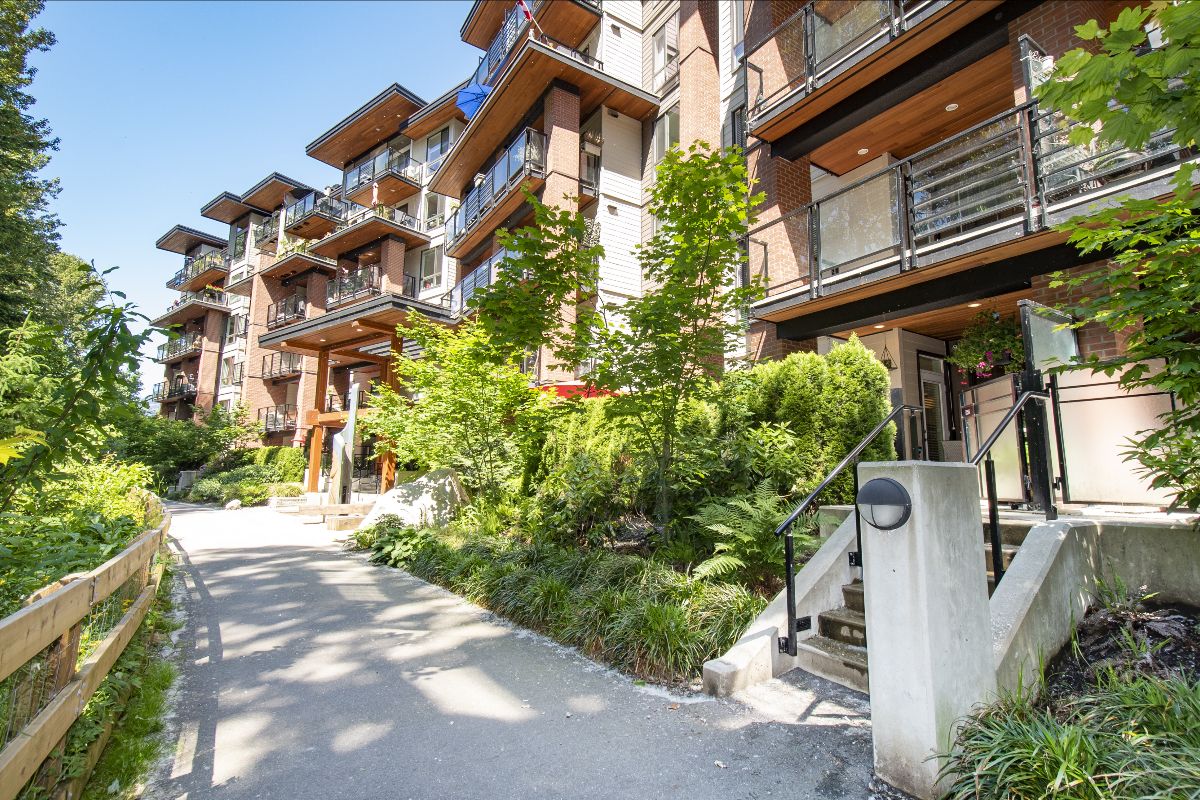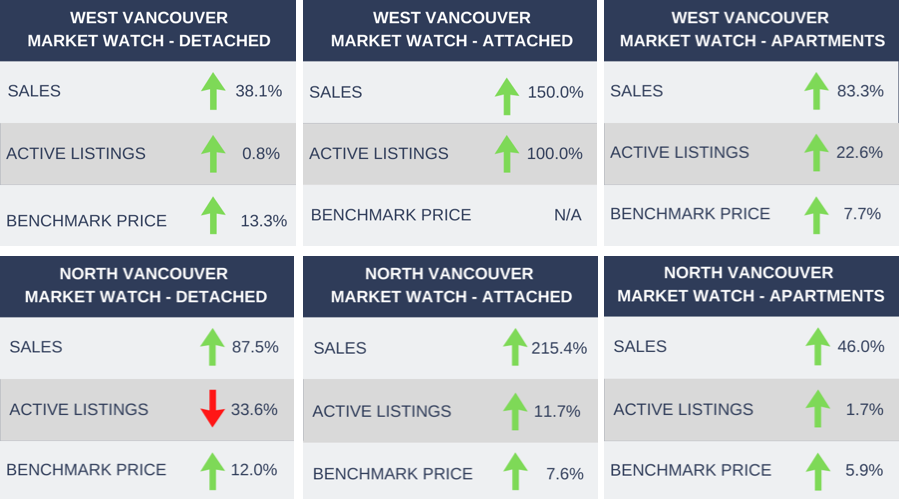IN THIS ISSUE:
• REBGV: Housing demand outpacing supply
• Forecasting in the post-COVID market
• Testimonial: ‘Our home sold a day after it was listed’
• Commercial real estate now re-purposing
• What new U.S. administration could mean

REBGV statistics: strong January market
Sales up, inventory down.
That’s the story from the Real Estate Board of Greater Vancouver for the first month of 2021.
More homes in Metro Vancouver are being sold, fewer are available, and the first part of that sentence is at least partly responsible for the second. As more homes sell, the number of homes for sale drops…unless it is replenished by new sellers who decide now is the time to sell. Right now, the supply is unable to keep pace with the demand.
Here are the facts:
• Sales in January were up a whopping 52.1 per cent over the same month in 2020.
• Sales of 2,389 residences were 36.4 per cent above the 10-year average for January.
• Homes on the market dropped 3.6 per cent compared to January 2020.
• There were 2.7 per cent fewer homes (that’s total listings) available than in the previous month, December 2020.
On the bright side, new listings increased as people are learning to live with the pandemic. There were 86 per cent more of them compared to December, and 15.7 per cent more compared to last January.
“This is causing increased competition amongst home buyers and upward pressure on prices,” the REBGV said in its monthly news release. “People who managed to enter the market a few years ago, and have seen their home values increase, are now looking to move up in the market to accommodate their changing needs.”
Price increases are measured by the sales-to-active listings ratio. If it stays above 20 per cent over several months, that puts pressure on home prices to rise. If it stays below 12 per cent, prices can be expected to decline.
Last month, it was 28.8 per cent. In December, it was 36.2 per cent. In November, 27.6 per cent. In October, 29.7 per cent. In September, 27.8 per cent.
Those figures are for all residential properties. Townhomes led the way in January, at 37.6 per cent, followed by apartments (27.8 per cent) and detached homes (26.3 per cent).
In actual sales, 68.6 more detached homes sold in January 2021 compared to the same month last year, followed by apartments (46.8 per cent) and townhomes/attached homes (42.8 per cent).
There are always theories about the market, but what the REBGV delivers are the facts.
More homes in Metro Vancouver are being sold, fewer are available, and the first part of that sentence is at least partly responsible for the second. As more homes sell, the number of homes for sale drops…unless it is replenished by new sellers who decide now is the time to sell. Right now, the supply is unable to keep pace with the demand.
Here are the facts:
• Sales in January were up a whopping 52.1 per cent over the same month in 2020.
• Sales of 2,389 residences were 36.4 per cent above the 10-year average for January.
• Homes on the market dropped 3.6 per cent compared to January 2020.
• There were 2.7 per cent fewer homes (that’s total listings) available than in the previous month, December 2020.
On the bright side, new listings increased as people are learning to live with the pandemic. There were 86 per cent more of them compared to December, and 15.7 per cent more compared to last January.
“This is causing increased competition amongst home buyers and upward pressure on prices,” the REBGV said in its monthly news release. “People who managed to enter the market a few years ago, and have seen their home values increase, are now looking to move up in the market to accommodate their changing needs.”
Price increases are measured by the sales-to-active listings ratio. If it stays above 20 per cent over several months, that puts pressure on home prices to rise. If it stays below 12 per cent, prices can be expected to decline.
Last month, it was 28.8 per cent. In December, it was 36.2 per cent. In November, 27.6 per cent. In October, 29.7 per cent. In September, 27.8 per cent.
Those figures are for all residential properties. Townhomes led the way in January, at 37.6 per cent, followed by apartments (27.8 per cent) and detached homes (26.3 per cent).
In actual sales, 68.6 more detached homes sold in January 2021 compared to the same month last year, followed by apartments (46.8 per cent) and townhomes/attached homes (42.8 per cent).
There are always theories about the market, but what the REBGV delivers are the facts.
What friends of Nexus have to say…
Clients who have experience either as buyers or sellers with Nexus Realty are often happy to share their thoughts about the experience with News From Nexus readers. Here is the latest testimonial, from a seller, Lauryn Oates of North Vancouver:
“We have worked with Dale and Jennifer a couple of times now, and I can say they are unlike any realtors I’ve known previously. They work to understand your needs, and are ready to look as hard and as long as it takes to find you the right home if you’re buying. If you’re selling, they make sure your home stands out
from the competition.
“Our home sold a day after it was listed, despite other units in the building being listed at the same time, and being outside of the peak season for selling. We’d work with them again in a heartbeat, and recommend them to anyone we know selling or buying – you can’t find a better team to work for your best interests in either the selling or buying experience.”
“Our home sold a day after it was listed, despite other units in the building being listed at the same time, and being outside of the peak season for selling. We’d work with them again in a heartbeat, and recommend them to anyone we know selling or buying – you can’t find a better team to work for your best interests in either the selling or buying experience.”

What happens when COVID-19 subsides?
There are forecasts in the media that once COVID-19’s curve starts to flatten the real estate market will also flatten as fiscal reality puts pressure on governments that have been providing incentives. While this may not be the case come summer or early fall — assuming the pandemic will be in a better place — a soft market is a distinct possibility.
Also possible: It could happen even sooner, depending on when life with COVID-19 begins to improve.
For people who may want to sell their homes and are waiting, spring may turn out to be the best time this year to sell, and that may also be the optimum time for buyers. Sellers who wait could miss out on the prices that come with a strong market. Buyers who wait could miss out on the choices that come with the inventory of a strong market.
In one projection using hypothetical conditions, the Central Mortgage and Housing Corporation projected last month that housing prices could plunge by between 14 and  50 per cent (worst-case scenario). It might be worth mentioning that CMHC’s projections last May were of an 18 per cent drop…and that didn’t happen.
50 per cent (worst-case scenario). It might be worth mentioning that CMHC’s projections last May were of an 18 per cent drop…and that didn’t happen.
 50 per cent (worst-case scenario). It might be worth mentioning that CMHC’s projections last May were of an 18 per cent drop…and that didn’t happen.
50 per cent (worst-case scenario). It might be worth mentioning that CMHC’s projections last May were of an 18 per cent drop…and that didn’t happen.
That being said, it’s something sellers in particular might be wise to consider — don’t count on being able to sell at the optimum price after the pandemic subsides, or begins to subside. Sellers thinking about listing their properties within the next year might consider doing so now, in the spring, rather than take a chance on missing out on what could be the optimum time to sell.
Spring is traditionally the best time of the year for real estate activity, in years when there is no pandemic.
Looking deeper into 2021, there’s even more uncertainty about what market conditions will be in late fall, like November, which annually is not an active time for real-estate transactions. Governments are likely to be recovering from months of subsidies that are necessary to keep the economy working, and homeowners are likely to be returning to making ends meet without that government assistance.
What about interest rates? They’re widely expected to stay low, although perhaps not as low as what they are now.
Waiting for s post-COVID market may indeed be the best approach, even though many economists express uncertainty about what the economy will be like. Homeowners who prefer the traditional approach, despite the pandemic, may choose to list their homes in the spring.

Re-purposing in the bricks and mortar world
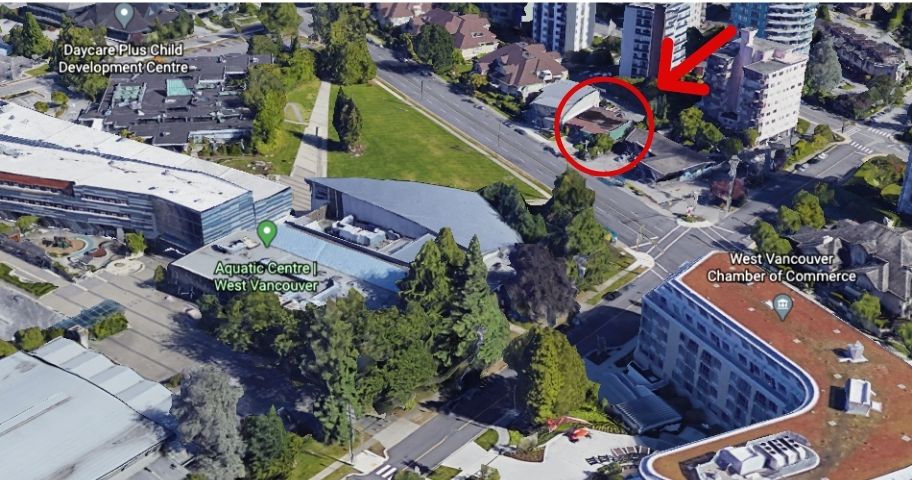 You might have the impression that commercial real estate is on the decline.
You might have the impression that commercial real estate is on the decline. Hold that thought.
Commercial real estate is changing more than declining. The change is being dictated by the current demand for space that is being re-purposed.
Here’s one example:
A recent commercial real estate transaction which involved Nexus Realty — experienced and always interested in commercial clients — resulted in the transformation of space from a traditional commercial operation (things like hair dressing salon, spa, etc.) to what is being re-purposed as a medical facility. Much like buying or renting in the home ownership world, the new owners have now invested in the building which will house their operation.
This commercial space is at 22nd and Marine Drive in West Vancouver and renovations currently underway to make the re-purposing viable for the medical profession. As you can see by the photograph, it’s located in a prime location, across from the West Vancouver Community Centre that’s the hub of much activity in the area.
For a snapshot of the big picture in commercial real estate, activity in British Columbia increased in the third quarter of last year after four consecutive quarterly declines. In other words, in the middle of the COVID-19 pandemic, the demand for commercial real estate rose, according to the B.C. Real Estate Association’s Commercial Leading Indicator, by 11.9 per cent. The increase over a year (remember, that includes three straight declining quarters) was 1.3 per cent.
Typically, it’s a rebound in retail sales and employment that leads to a rebound in retail and office space, so this increase seems to have a different driver. And the re-purposing of retail space seems to be in its early days, at least In Vancouver, where the Real Estate Board of Greater Vancouver reports a third-quarter decline of 8.9 per cent in sales yet an increase of 31.7 per cent in the dollar value of sales.
So while the bricks-and-mortar retail sector has been hit hard, it is recovering…but in many cases with a different purpose.
To find out more, call Dale at (604) 720-3353.

New U.S. government impact on real estate
“How will a new American administration with such a different philosophy affect the economy…not just the world economy, but individual countries’ economies? What will the trickle-down effect of that mean for economic components…such as real estate?
Specifically, in Canada, the country next door.
The U.S. will presumably become more stable and more predictable, following the most difficult year of a lifetime, one which might charitably be remembered as interesting and educational. While 2021 — still fuelled by the uncertainty of COVID-19 — is also expected to be interesting, it also offers the optimism that accompanies stability.
Historically, when America succeeds the rest of the world succeeds. This year’s success depends on the pandemic, of course, and that optimism depends on the success of the vaccines that continue to look promising. A diminished pandemic will lead to better job numbers and better economic numbers, not to mention the new and perhaps better approaches across many sectors of the economy.
The impact on real estate?
It’s shaping up as an interesting and active year. Many clients have stayed on the sidelines, for the logical reason that it has been tricky to move in COVID times. Interesting and active is likely to result in a strong market.
In a recent poll, 69 per cent of respondents supported the current U.S. COVID plan, and the philosophy of rolling up sleeves and diving into the heart of the pandemic. That includes the regular COVID briefings that keep Americans informed, similar to what British Columbians have experienced with Dr. Bonnie Henry’s public sessions for almost a year.
Transparency and accurate information should make both countries more stable in an unstable time.
Real estate is closely tied to the economy. The economy is closely tied to stability.
The year looks “promising” and that includes real estate.


That Surrey and Vancouver were alone in first place on a C.D. Howe Institute report card that graded the clarity, comprehensiveness and timeliness of the financial presentations of 31 major Canadian municipalities — both scoring A-plus?

Real Estate Monthly Statistics
The following statistics for West Vancouver, North Vancouver, Vancouver West and Vancouver East
compare January 2021 to January 2020 (note: sales refers to number of sales, not to sale prices).
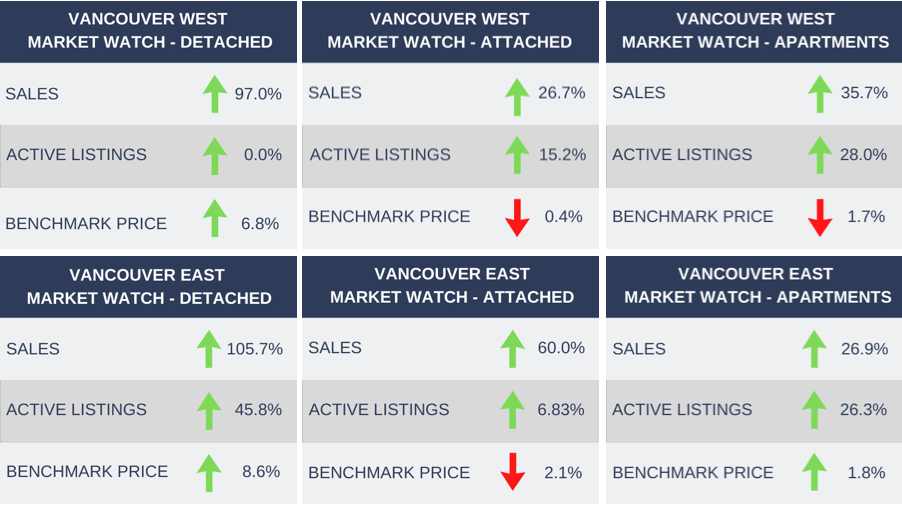 Benchmark Price: Estimated sale price of a benchmark property.
Benchmark Price: Estimated sale price of a benchmark property.
Benchmarks represent a typical property within each market.
To see more information on local stats, please click here.
(working with buyer)

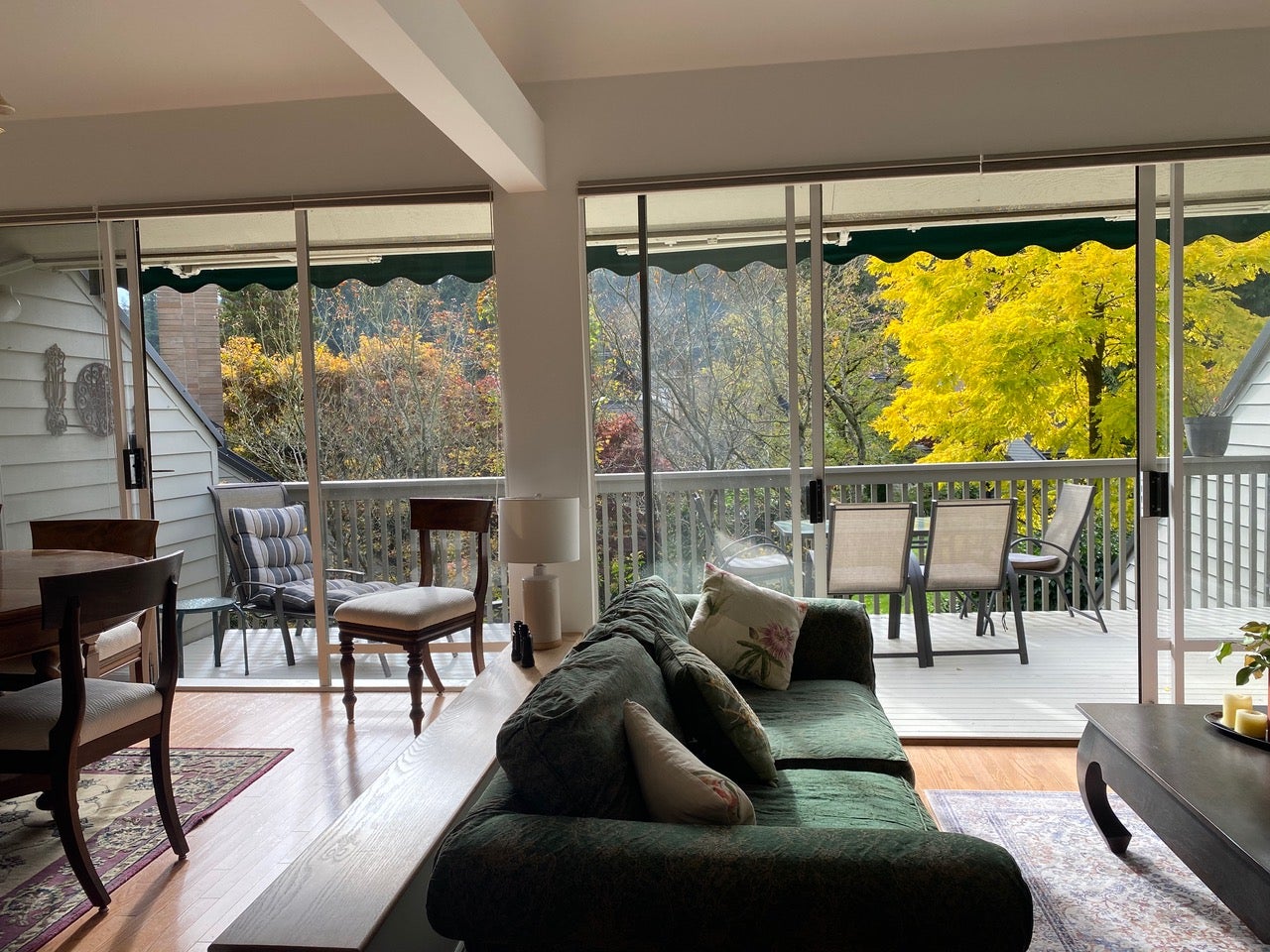 Two of the important stages in every real estate sale are: (1) an accepted offer and (2) the completion of the transaction, when it becomes official with the final financial transaction. Nexus Realty takes its clients from concept to completion.
Two of the important stages in every real estate sale are: (1) an accepted offer and (2) the completion of the transaction, when it becomes official with the final financial transaction. Nexus Realty takes its clients from concept to completion.

 Two of the important stages in every real estate sale are: (1) an accepted offer and (2) the completion of the transaction, when it becomes official with the final financial transaction. Nexus Realty takes its clients from concept to completion.
Two of the important stages in every real estate sale are: (1) an accepted offer and (2) the completion of the transaction, when it becomes official with the final financial transaction. Nexus Realty takes its clients from concept to completion. After this Caufeild Cove townhome on Marine Drive in West Vancouver was "sold" early last month, the sale became a
fait accompli early this month.

Virtual events to enjoy in February
Will Stroet, a much-loved family entertainer and educator whose concerts feature high-energy sing-along music in both English and French, will come to you from the West Vancouver Memorial Library on February 6.
One of the Cultural Olympiad events during the 2010 Vancouver Winter Olympics, LunarFest has gone virtual for 2021, with crafts, a ballet performance and online family fun, on February 11-12.
And on February 20, John Atkin, a well-known walking tour guide, invites you on a virtual tour of some of Vancouver’s hidden heritage spots, sharing his unique historical knowledge. There will be a Q and A with John following his “tour”.
One of the Cultural Olympiad events during the 2010 Vancouver Winter Olympics, LunarFest has gone virtual for 2021, with crafts, a ballet performance and online family fun, on February 11-12.
And on February 20, John Atkin, a well-known walking tour guide, invites you on a virtual tour of some of Vancouver’s hidden heritage spots, sharing his unique historical knowledge. There will be a Q and A with John following his “tour”.
Below is the complete list for February:
Until February 7
Got Craft? Virtual Market Food Edition
https://shop.gotcraft.com/
Until February 25
US: A Black Peoples Month festival
New shows released every Thursday
https://www.ensembletheatrecompany.ca/festival-details
February 3 through May 9
Until February 7
Got Craft? Virtual Market Food Edition
https://shop.gotcraft.com/
Until February 25
US: A Black Peoples Month festival
New shows released every Thursday
https://www.ensembletheatrecompany.ca/festival-details
February 3 through May 9
Bill Reid Gallery – Indigenous History in Colour
SOLO EXHIBITION BY LUKE PARNELL
https://www.billreidgallery.ca/blogs/exhibitions-page/indigenous-history-in-colour
February 6
WVML LIVE in Your Living Room: Will's Jams
An all ages concert by West Vancouver Memorial Library
https://www.eventbrite.ca/e/wvml-live-in-your-living-room-wills-jams-all-ages-concert-tickets-136747871565?aff=erelexpmlt
February 11-12
LunarFest Vancouver 2021
https://lunarfestvancouver.ca
February 14
Songwriting Together, with Earle Peach
https://www.eventbrite.ca/e/songwriting-together-tickets-138511687185
February 20
Discovering Heritage Places: A Virtual Stroll
Vancouver Heritage Foundation
https://www.tickettailor.com/events/vancouverheritagefoundation/471956/
February 24-27
Virtual Vancouver International Boat Show
https://www.vancouverboatshow.ca
Snowshoeing on Cypress
A 1km snowshoe walk through old growth on Hollyburn Mountain
https://cypressmountain.com/snowshoeing
Canada Reads Contenders
https://www.cbc.ca/books/canadareads/meet-the-canada-reads-2021-contenders-1.5869833
Sports at the Rio Theatre
http://riotheatre.ca/
The Eraser
http://www.pendulumgallery.bc.ca/exhibition-current/
Musee Dorsay, Paris
https://artsandculture.google.com/partner/musee-dorsay-paris
Vancouver Hot Chocolate Festival
https://hotchocolatefest.com/
Squamish Hot Chocolate Festival
https://foodgressing.com/squamish-hot-chocolate-festival-2021/
The Vancouver International Mountain Film Festival
https://vimff.org/
Dine Out Vancouver
https://www.dineoutvancouver.com
Family Day At MOV
Admission must be pre-booked
https://museumofvancouver.myzonetickets.com/
Tourism Vancouver Events
https://www.tourismvancouver.com/events/calendar-of-events/vancouver-events-in-february/
North Shore Events
https://www.vancouversnorthshore.com/events-calendar/
West Vancouver United Church
Sunday service 10 a.m.
SOLO EXHIBITION BY LUKE PARNELL
https://www.billreidgallery.ca/blogs/exhibitions-page/indigenous-history-in-colour
February 6
WVML LIVE in Your Living Room: Will's Jams
An all ages concert by West Vancouver Memorial Library
https://www.eventbrite.ca/e/wvml-live-in-your-living-room-wills-jams-all-ages-concert-tickets-136747871565?aff=erelexpmlt
February 11-12
LunarFest Vancouver 2021
https://lunarfestvancouver.ca
February 14
Songwriting Together, with Earle Peach
https://www.eventbrite.ca/e/songwriting-together-tickets-138511687185
February 20
Discovering Heritage Places: A Virtual Stroll
Vancouver Heritage Foundation
https://www.tickettailor.com/events/vancouverheritagefoundation/471956/
February 24-27
Virtual Vancouver International Boat Show
https://www.vancouverboatshow.ca
Snowshoeing on Cypress
A 1km snowshoe walk through old growth on Hollyburn Mountain
https://cypressmountain.com/snowshoeing
Canada Reads Contenders
https://www.cbc.ca/books/canadareads/meet-the-canada-reads-2021-contenders-1.5869833
Sports at the Rio Theatre
http://riotheatre.ca/
The Eraser
http://www.pendulumgallery.bc.ca/exhibition-current/
Musee Dorsay, Paris
https://artsandculture.google.com/partner/musee-dorsay-paris
Vancouver Hot Chocolate Festival
https://hotchocolatefest.com/
Squamish Hot Chocolate Festival
https://foodgressing.com/squamish-hot-chocolate-festival-2021/
The Vancouver International Mountain Film Festival
https://vimff.org/
Dine Out Vancouver
https://www.dineoutvancouver.com
Family Day At MOV
Admission must be pre-booked
https://museumofvancouver.myzonetickets.com/
Tourism Vancouver Events
https://www.tourismvancouver.com/events/calendar-of-events/vancouver-events-in-february/
North Shore Events
https://www.vancouversnorthshore.com/events-calendar/
West Vancouver United Church
Sunday service 10 a.m.
http://www.bcwine.ca/virtual-winery-tours
Vancouver Art Gallery
Vancouver Art Gallery
Art Connects — a series of online gatherings that encourage dialogue and connection in the era of physical distancing.
Every Tuesday and Friday, the Gallery will stream live and interactive conversations into your homes, featuring guests from local and international arts communities. Everyone is invited to join via Zoom.
Play: Kids Yoga Day
Kids and parents: ready to move and have fun together!
Play: Kids Yoga Day
Kids and parents: ready to move and have fun together!
www.eventbrite.ca/e/play-kids-yoga-day-powered-by-mymomentum-uphoria-yoga-tickets-102448062914
Connect with Family and Friends
To connect with family and friends you can use Facebook, Messenger, FaceTime, Google Duo or Hangouts, Zoom, Instagram Video Chat, Snapchat Video and Chat, Skype, WhatsApp…the list is long. Check with family or friends and decide which is the best way to connect.
Tired of Cooking?
Many restaurants are offering take-out. Breaking Bread Now provides a list of restaurants in different areas with take-out meals breakingbreadnow.com/.
On Facebook there is a group called Support Local Business which supports local restaurants and businesses and gives them and others the opportunity to spread the word. Maybe your area has a similar Facebook group: www.facebook.com/groups.
Need some culture or learning in your life?
Go to a virtual museum — you’ll find a lot of them through Google: https://artsandculture.google.com And for Canadian museums: http://www.virtualmuseum.ca/virtual-exhibits/type/virtual-exhibits/
Connect with Family and Friends
To connect with family and friends you can use Facebook, Messenger, FaceTime, Google Duo or Hangouts, Zoom, Instagram Video Chat, Snapchat Video and Chat, Skype, WhatsApp…the list is long. Check with family or friends and decide which is the best way to connect.
Tired of Cooking?
Many restaurants are offering take-out. Breaking Bread Now provides a list of restaurants in different areas with take-out meals breakingbreadnow.com/.
On Facebook there is a group called Support Local Business which supports local restaurants and businesses and gives them and others the opportunity to spread the word. Maybe your area has a similar Facebook group: www.facebook.com/groups.
Need some culture or learning in your life?
Go to a virtual museum — you’ll find a lot of them through Google: https://artsandculture.google.com And for Canadian museums: http://www.virtualmuseum.ca/virtual-exhibits/type/virtual-exhibits/
Go to a virtual opera: https://www.metopera.org/
Nature web cams can be fun to watch. explore.org/livecams
Search for lots of free learning programs for kids and adults online.
Visit your Library for virtual programming
Visit your Library for virtual programming
westvanlibrary.ca/
www.nvcl.ca/
nvdpl.ca/
www.vpl.ca/digitallibrary
Need some exercise?
Go for a walk and get some fresh air if you’re healthy and following physical distancing.
Need some exercise?
Go for a walk and get some fresh air if you’re healthy and following physical distancing.
Here is a link to some free exercise programs posted on CBC: www.cbc.ca/life/wellness/these-are-the-free-no-equipment-online-fitness-classes-you-need-right-now-1.5500751
Many exercise, yoga or meditation videos are available on YouTube.
